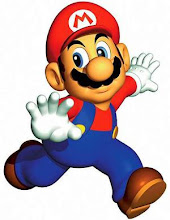 Nintendo is a major game development company, developing both video game consoles and game software. It uses global/differentiation and low cost business strategy. Nintendo's strategic business plan is to create a new low cost console with unique gameplay, instead of trying to develop new console with advanced graphics and superior processing power like its competitors. Nintendo is competing in global market dominated by Sony's Playstation and Microsoft's X-Box, however, Nintendo gained its competitive advantage with introduction of Wii and its innovative motion control stick. Nintendo greatly differentiate its product from its competitors by offering low cost strong value innovation, while it eliminates expensive features such as HD, DVD, Dolby 5.1. So while its competitors such as Sony or Microsoft compete against each other in established video gaming market, Nintendo created a new global market for itself.
Nintendo is a major game development company, developing both video game consoles and game software. It uses global/differentiation and low cost business strategy. Nintendo's strategic business plan is to create a new low cost console with unique gameplay, instead of trying to develop new console with advanced graphics and superior processing power like its competitors. Nintendo is competing in global market dominated by Sony's Playstation and Microsoft's X-Box, however, Nintendo gained its competitive advantage with introduction of Wii and its innovative motion control stick. Nintendo greatly differentiate its product from its competitors by offering low cost strong value innovation, while it eliminates expensive features such as HD, DVD, Dolby 5.1. So while its competitors such as Sony or Microsoft compete against each other in established video gaming market, Nintendo created a new global market for itself.
Michael Porter's Five Forces Analysis
In the industry Nintendo operates, Porter's five forces have great influence on the way companies do business.
- The first force, buying power, may be one of the greatest forces. Nintendo creates and provide products that depend on consumers. How much of or when these products are bought by consumers is solely dependent on the want of the consumers. The gaming systems that Nintendo produces are non-necessity products.
- Until recent demand of Nintendo's most recent product, the Wii, became to great to produce in house, Nintendo began to outsource. Today, Nintendo relies on such suppliers to produce components of the Wii system that include Sunplus Technology, Winstron Corp., Foxxcon, and Life-On Plans. These suppliers, who produce components such as power sources and control-chips. As the outsourcing reduced operating costs, Nintendo relies on the operations of other companies. Because of the high success of the Wii system, and the constant demand, outsourcing production of certain products has created competition between companies such as PixArt, supplier of first generation control chips with new suppliers such as Sunplus and Winstron.
- In Nintendo's industry, there are three main companies- Nintendo, Sony (producer of Playstation products) and Microsoft (producer of XBox systems). All three of these companies produce gaming systems, that can be though of as substitutes for one another, but all there different. As Sony and Microsoft products are similar, Nintendo is the only company to use interactive gaming; meaning the player(s) use the controller as a tool of what they are playing. For example, if a baseball game is being played, the player will hold the controller, throw a pitch; or hold the controller as a batter with a bat and swing at the pitch. XBox and Playstation systems do not offer this, as they use button- orientated controllers. Nintendo is the cheapest of the console systems, with Playstation being the highest, but offers interactive gaming as well as child and family oriented games; as well as the rights to the gaming figure "Mario", the highest selling gaming character to have existed. These three companies have constant rivalries as who has the best system, highest revenues, and more importantly; who is advancing in the next great system for consumers.
- The threat of new entrants is low, because the gaming market is dominated by Sony and Microsoft who gained the first-mover advantage. Nintendo entered the market, because it differentiated itself from these two companies by introducing new technology. The entry barriers are high in already established gamers' market, making it difficult for new companies to enter.
- The switching cost to leave Nintendo would be the motion-censored controller which make the game play more interactive then it's competitors. The customer will also lose the game play of the famous Mario, Donkey Kong, and Zelda characters produced solely for Nintendo game play. Also with the new Wii console you can create mii characters and play Wii with these characters.
Nintendo and its IT advantage
Nintendo primarily focuses on business intelligence and E-collaboration. Nintendo understands the importance of knowing its customers, competitors, business partners and the environment in which it operates. Nintendo focuses on targeting large audience. It does not necessarily focus on established gamers' market, but tries to expand beyond it, with its simplified, family products. Nintendo utilizes these advantages to be more efficient and effective in its strategic business decisions. - As the worldwide leader and innovator in the creation of interactive entertainment, Nintendo has several subsidiaries around the globe. Nintendo uses e-collaboration to help its employees communicate with other employees through collaborative software and be able to provide its clientele with the best games, licensed accessories and merchandise.
- Nintendo as a global differentiator focuses on the top line initiatives- increasing revenue. With its new products, it is trying expand gaming market and provide different customer experience for its consumers.







No comments:
Post a Comment